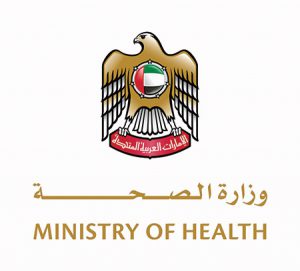DUBAI / WAM
Ministry of Health and Prevention (MoHAP) organised, in coordination with the World Health Organisation (WHO), a two-day workshop on strengthening national capabilities in emergency response and developing the national policy to combat health risks to reinforce the capacities of preparedness, prediction, and early warning.
Discussions touched on health risks in emergencies nationwide and at the health level. The attendees also agreed on the general policy directions of the health sector to manage the risks of health emergencies and the development of an outline for the national policy to combat health risks.
The workshop was attended by Dr Hussain Abdul Rahman Al Rand, Assistant Under-Secretary for the Public Health Sector; Dr Lubna Al Shaali, Director of Health Policies and Legislation Department; Dr Fatima Al-Attar, Director of the International Health Regulations Office; Dr Nada Al-Marzouqi, Director of the Department of Public Health and Prevention; Dr. Rasha Salama, Public Health Consultant, MoHAP, and some employees in relevant departments.
Dr Dalia Samhouri, Emergency preparedness and International Health Regulations Manager, Dr. Othman Al Mahal and Dr. Riana Ahmed were present from the WHO.
Dr Hussein Al Rand welcomed the attendees and lauded the cooperation with the WHO, pointing to the importance of the workshop in planning health risk management and control to keep pace with the rapid changes in dealing with natural and health emergencies that affect various countries.
In this context, Al Rand highlighted the importance of reducing health risks through developing sustainable policies and plans, strengthening the capabilities of institutions to face health risks, including the process of combating health risks in the implementation of emergency preparedness and necessary response programmes.
He added, “Discussions also shed light on identifying, classifying and assessing potential health risks, predicting future health risks and developing solutions to prevent them, continuing to improve information on health risks, strengthening early warning systems, and building a culture of safety and ability to face health risks in the UAE.”
“The ministry, under the guidance and support of the wise leadership, has launched a raft of policies, legislation, initiatives and innovative programmes, through which it aims to enhance public health and give community members great and pivotal importance, according to a methodology that applies the highest standards of excellence,” said Dr Lubna Al-Shaali, Director of the Department of Health Policies and Legislation.
“With that in mind, the ministry will be developing the national policy to combat health risks to protect community members, focusing on addressing current and emerging health risks that threaten public health,” she added.
Many efforts are made in this regard, including laws and executive decisions and the implementation of initiatives and programmes to reduce health hazards.
This also includes enforcing International Health Regulations and public health monitoring and response measures, such as the measures to protect community members in the prevention of biological risks, including infectious diseases, food safety, prevention of zoonotic diseases, chemical and nuclear radioactive hazards, and environmental safety.
 The Gulf Time Newspaper One of the finest business newspapers in the UAE brought to you by our professional writers and editors.
The Gulf Time Newspaper One of the finest business newspapers in the UAE brought to you by our professional writers and editors.
